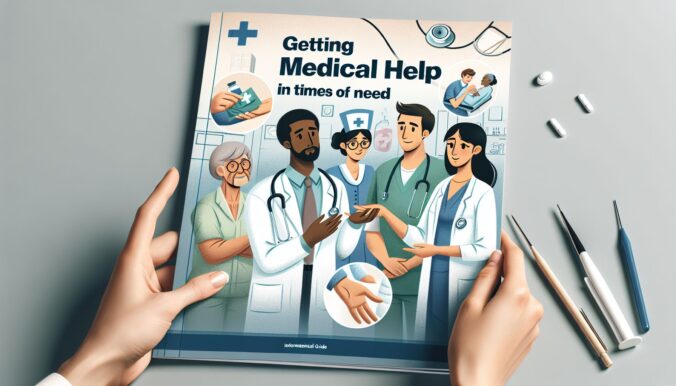When faced with a medical emergency or health concern, it can be overwhelming to know where to turn for help. Whether it’s a sudden illness, injury, or chronic condition, having a plan in place for seeking medical assistance is crucial. In this guide, we’ll outline the steps you should take to ensure you receive the appropriate care when you need it most.
1. Assess the Situation
The first step in seeking medical help is to assess the severity of the situation. Is it a true emergency that requires immediate attention, or is it something that can wait until you can see a primary care physician? If you are unsure, it’s always better to err on the side of caution and seek help sooner rather than later.
2. Call for Assistance
If you determine that the situation is an emergency, don’t hesitate to call 911 or your local emergency services number. Emergency responders can provide life-saving care on the scene and transport you to the nearest hospital for further treatment. It’s important to stay calm and provide as much information as possible to the dispatcher to ensure the appropriate resources are dispatched.
3. Visit Urgent Care or Walk-In Clinics
For non-life-threatening issues that require prompt attention but are not emergencies, consider visiting an urgent care center or walk-in clinic. These facilities are equipped to handle a variety of medical issues, from minor injuries to illnesses, and can often provide faster and more affordable care than a traditional emergency room visit.
4. Contact Your Primary Care Physician
If your health concern is not urgent but still requires attention, reach out to your primary care physician to schedule an appointment. Your doctor knows your medical history and can provide personalized care and ongoing management for chronic conditions. Don’t hesitate to ask for a same-day appointment if necessary.
5. Utilize Telehealth Services
In some cases, you may be able to receive medical advice and treatment remotely through telehealth services. Virtual appointments with healthcare providers can be a convenient and efficient way to address minor health concerns or follow-up on ongoing treatment. Many insurance plans now cover telehealth visits, making this option more accessible than ever.
In conclusion, knowing how to seek medical help in times of need is essential for ensuring you receive the care you need when you need it most. By following these steps and being prepared, you can navigate the healthcare system with confidence and peace of mind. Remember, your health is important, so don’t delay in seeking help when you need it.
